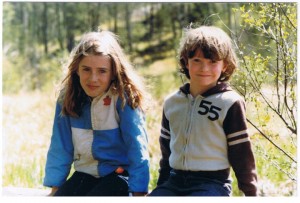While the White Elephant is an esteemed possession in India, valued as an asset, the costs of upkeep greatly exceed its usefulness and ownership ultimately becomes a liability.
I always knew there was something different about my mother, Janet. But I never saw her behavior as “wrong.” I grew up in the ’70s, after all, and during that time almost everyone acted just like my mom, right? Impulsive, “hippie-like,” and ready to party. It wasn’t until I hung out at my friends’ houses and saw how those families functioned and interacted with one another that I realized life in my house may not have been quite as normal as normal should have been.

Back then it seemed women were almost expected to go a little loopy sometimes. After all we’re the ones with raging hormones that get out of whack – by our periods, PMS or pregnancy and childbirth – and cause craziness and bizarre behavior. And because of those uncontrollable hormones, women are also more emotional and predisposed to depression. These are things my mom was actually told by her parents, her family, her husbands and friends… even her doctor. Eventually, she made herself believe that her erratic behavior stemmed from PMS, not mania or alcohol.
Another factor of my mother’s situation was that she was adopted shortly after birth. Adoptions were closed back in the 1950s. That meant you pretty much got what you got “as is.” No access was allowed to family health history, so adoptive parents could not be warned of susceptibility to mental illness.
If anyone had been curious enough to investigate these facts in my mom’s situation, they may have found that her mother was bipolar and alcoholic, too. Hmmm… so, why didn’t anyone try to find out these things about my mom or help her? I guess no one wanted to take on the responsibility.
If my own mental state had deteriorated to the point where I’d hurt myself or those around me, I would have wanted the assurance that someone would have been brave enough to have forced me into treatment. And it angered me as a woman, a mother, a sister, a friend, a lover, and a daughter, that people didn’t do more to help my mother – that I didn’t do more.
I wished those around Mom knew how to help her; or were willing to help her, or even to help her help herself. Nobody was brave enough to take that first step. Doing so would have meant taking on total responsibility – for my brother and me and my mom’s situation. Well, nobody wanted that. Not even me.
There’s a psychological term for that. Deindividuation. You know, where everyone thinks someone else will do something but no one does a thing? Never mind. It doesn’t matter now. What matters now, at least to me, is that no matter what my mom did or didn’t do, no one was brave enough to grab her hand. But I’m taking it now and raising it up.
Janet Batty was a person with mental illness. It doesn’t excuse the things she did or erase the damage done as a result of some of her bad choices. But her story can help others. It might give strength to those who see a mother, sister, daughter, lover, wife, best friend, teacher or acquaintance in need.
